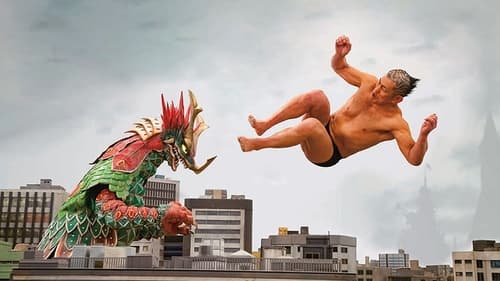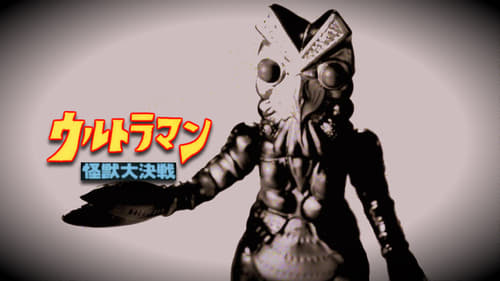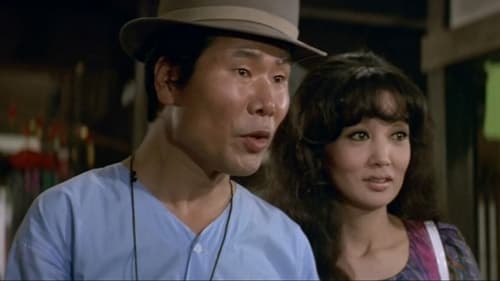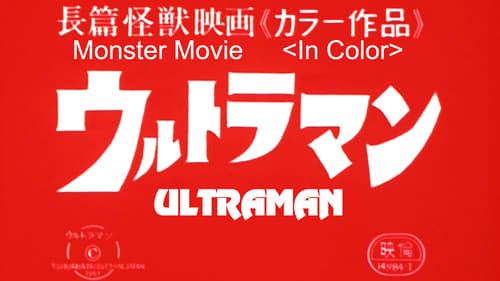Sandayuu Dokumamushi
Рождение : 1936-03-31, Sumiyoshi Ward, Osaka, Prefettura di Osaka, Giappone

大泉健三
Atsuko and Akira are a husband and wife duo with a daughter and a son. Atsuko is in charge of the retirement finances. She saves from money given to her by her husband and also earns money herself by working part-time. She stretches every yen by leading a frugal life. yet, expenses come up. These include their daughter's upcoming wedding and the funeral expenses of the husband's father. Then, and at exactly the worst time, the couple finds itself unemployed.

Dump truck driver (voice)
Чёрный кот Рудольф потерял своего хозяина — он проснулся в грузовике, который привозит его в огромный Токио. Там Рудольф встречает огромного кота Иппая, которого боятся все местные коты, и решает учиться быть бродячим под мудрыми наставлениями бывалого Иппая.

Himself
When a giant monster attacks Japan, the country's only hope is a research assistant who's become monstrously big himself. But there might be a price.

The film is composed of stock footage from the original Ultraman television series with additional newly filmed content, and it served as an “epilogue” as Ultraman returns to Earth for one final battle.

Security Guard
During World War II, the Japanese military established a secret underground laboratory in Tokyo. Three Olympic-level athletes were selected to undergo a process that would turn them into Jinra-go, superhuman armored soldiers. By March 1945, one of the soldiers had been completely transformed into the half man/half machine ultimate soldier called Mikadroid. But American B-29s firebomb the city and, while the two super soldiers manage to escape, Mikadroid and the lab are apparently destroyed. 45 years pass, Tokyo is rebuilt, and old secrets are forgotten. The site is now home to a complex that includes the Discoclub Layla. The disco’s patrons dance late into the night, unaware that a faulty basement generator has reactivated Mikadroid and the cyborg now prowls the basement levels, killing anyone in its path...

A biographical dramatization about the production of the original Ultraman, the beloved classic special effects fantasy series from Eiji Tsuburaya.

Daisuke Arashi
A 1979 Japanese tokusatsu kaiju film produced by Tsuburaya Productions, consisting of re-edited material from the original television series Ultraman. Ultraman: The Great Decisive Battle was the 1st movie of the third Showa phase (Jissouji's Ultraman being first and Ultra Brothers vs. The Monster Army being second) and because of this Tsuburaya decided to make this a reunion of the last 12 Ultras (aside from Ultraman 80 which hadn't come out yet). Tsuburaya decided to give this a different tone than Jissouji's Ultraman, having more new scenes and appealing to the all-Ultra fan.

Dokushima
Nikkatsu Roman Porno

Тора навещает свою семью через год. После недоразумения он расстраивается и уезжает в деревню. По дороге он встречает певицу Лили, и они чувствуют связь. Некоторое время спустя Тора снова встречает Лили и проводит некоторое время вместе с ней.

Daisuke Arashi
The film consists of re-edited material from the original television series Ultraman. Episodes 1, 8, 26, and 27 were used for the film. They were narrated by Hikari Urano as an "Ultraman Documentary". Allegedly only one new scene was shot, and that some parts of the movie where shot in black and white for unknown reasons. The movie screened at the same time as the Toho movie King Kong Escapes.

The recorded stage debut of the original Ultraman.

Tobiccho
Two outsiders start a relationship in a mining town.

Kokichi Nishida
Двадцатилетняя Ясуко учится в театральном училище и часто подрабатывает фотомоделью. Она презирает все старомодное, в том числе и традиционный способ вступления в брак по сватовству – омиаи. Инициаторами сватовства обычно являются родственники или работодатели молодой пары. Как правило, в таких случаях мнение вступающих в брак мало учитывается, а их союз является лишь взаимовыгодной «сделкой». Старшая сестра Ясуко, Кэйко, уже давно вышла замуж за «скучного» профессора философии Какиути. У них есть маленькая дочь. Брат Ясуко тоже недавно женился, понимая, что это значительно ускорит его карьерный рост. Сама Ясуко уверена, что выйдет замуж только по любви, предмет ее увлечения – студент по имени Хироси. Однако, выясняется, что Хироси уже живет с другой девушкой и не видит в этом ничего дурного. Ясуко начинает понимать, что к браку по любви тоже нужно подходить с долей расчета...

Though recognized worldwide almost exclusively for his colorful kaiju fare, director Ishirō Honda (Godzilla, Rodan, Mothra) was a natural humanist with a particular understanding of the relationship between people and their social environs. His debut fiction feature, The Blue Pearl (Aoi Shinju) – virtually unseen in the west until now – depicts the melodramatic, but keenly-observed interplay between a young man from Tokyo and two ama (pearl divers; literally “women of the sea”) in a superstitious coastal town. Though raised within the same tradition-bound crucible, the two women – Noe and Riu – are portrayed as diametric opposites; the former meek but affectionate, the latter strong-willed but jaded by a tryst with metropolitan life. Nonetheless, Honda provides equal weight to their desires and their ambitions to break free from the social mold imposed upon them from birth.










